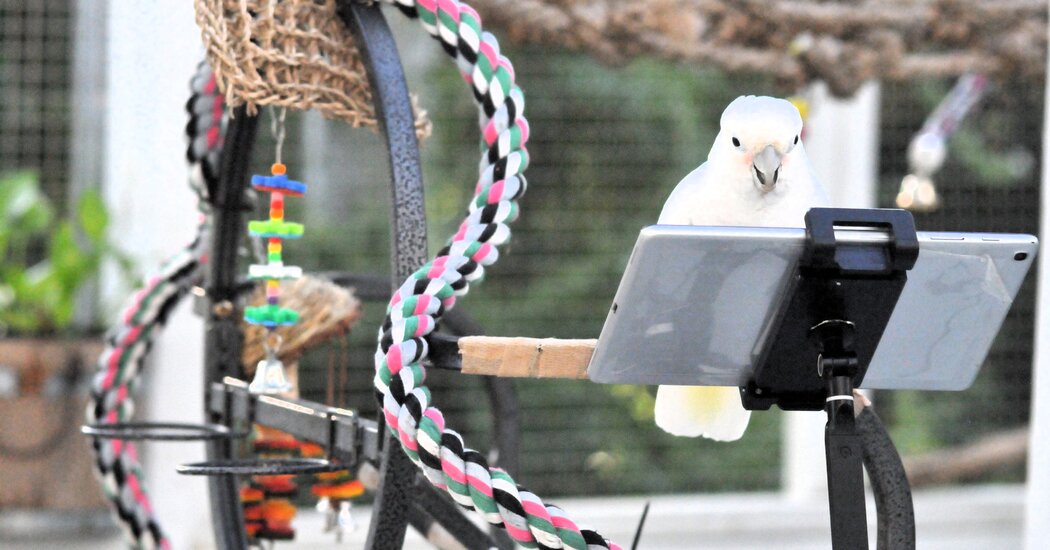
Half a century ago, one of the hottest questions in science was whether humans could teach animals to talk. Scientists tried using sign language to converse with apes and trained parrots to deploy growing English vocabularies.
The work quickly attracted media attention — and controversy. The research lacked rigor, critics argued, and what seemed like animal communication could simply have been wishful thinking, with researchers unconsciously cuing their animals to respond in certain ways.
In the late 1970s and early 1980s, the research fell out of favor. “The whole field completely disintegrated,” said Irene Pepperberg, a comparative cognition researcher at Boston University, who became known for her work with an African gray parrot named Alex.
Today, advances in technology and a growing appreciation for the sophistication of animal minds have renewed interest in finding ways to bridge the species divide. Pet owners are teaching their dogs to press “talking buttons” and zoos are training their apes to use touch screens.
In a cautious new paper, a team of scientists outlines a framework for evaluating whether such tools might give animals new ways to express themselves. The research is designed “to rise above some of the things that have been controversial in the past,” said Jennifer Cunha, a visiting research associate at Indiana University.
The paper, which is being presented at a science conference on Tuesday, focuses on Ms. Cunha’s parrot, an 11-year-old Goffin’s cockatoo named Ellie. Since 2019, Ms. Cunha has been teaching Ellie to use an interactive “speech board,” a tablet-based app that contains more than 200 illustrated icons, corresponding to words and phrases including “sunflower seeds,” “happy” and “I feel hot.” When Ellie presses on an icon with her tongue, a computerized voice speaks the word or phrase aloud.
